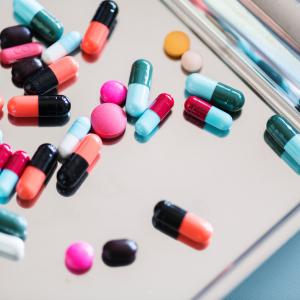Research Shows That Ketamine Delivers Quickly For Treatment-Resistant Depression
In the biggest clinical trial to date testing this drug, the anesthetic ketamine delivered big and quickly to patients with treatment-resistant depression.
Researchers from the Icahn School of Medicine at Mount Sinai carried out the study, testing the drug in patients with major depressive disorder. They found that not only was it effective, but it delivered results in one day – significantly shorter than conventional antidepressants, which often require more than a week to begin to work.
Investigators evaluated 72 people diagnosed with treatment-resistant depression (defined as depression that persists after at least two drug interventions). These patients were split into a treatment arm, which was administered a single IV infusion of ketamine for 40 minutes, and a placebo arm, which received midazolam, an anesthetic also but in a different class.
Ketamine appears to be a safe and effective treatment option
Interviews with patients began after 24 hours, and patients were re-interviewed after seven days. At the first interview, the response rate in the treatment arm was 63.8 percent, compared to 28 percent in the placebo arm.
A week later, the response rate to the ketamine arm was still higher, at 45.7 percent, compared to 18.2 percent in the placebo arm.
Lead author James Murrough, MD, assistant professor of psychiatry at Mount Sinai, said that using midazolam as an active placebo allowed us to independently assess the antidepressant benefit of ketamine, excluding any anesthetic effects. Ketamine continues to show significant promise as a new treatment option for patients with severe and refractory forms of depression.
Dr. Murrough added, "We found that ketamine was safe and well-tolerated and that patients who demonstrated a rapid antidepressant effect after starting ketamine were able to maintain the response throughout the course of the study."
While the results are promising, Murrough said that future studies will need to be larger and placebo-controlled in order to support these findings and determine both the safety and efficacy profile of ketamine as a treatment for depression.
The research was presented at the American Psychiatric Association meeting in San Francisco. The findings should be considered preliminary until published in a peer-reviewed journal.
Source: MNT
Photo: Px Here







